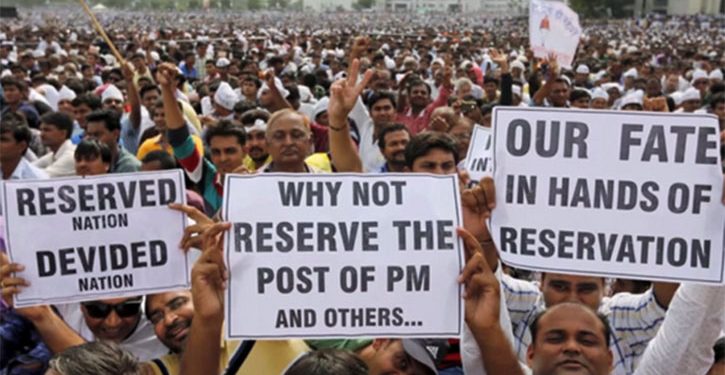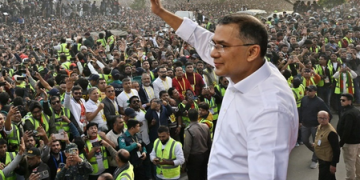One aspect of India that the country has always claimed to be its biggest strength is also its biggest weakness: Diversity. While we have blamed the British for their ‘divide and rule’ policy, truth may be that the colonial power would not have had to try too hard to achieve that end in this country. It is easy to divide people and create emotional fault lines that keep the populace precariously on the edge for whatever time one needs to tap a certain output from them. The situation that has evolved and prevails in Kerala is evidence of the possibility. The tensions are likely to be maintained until the coming Lok Sabha elections and until then peace will not be given a chance to prevail in the southern state. The state government will use its iron fist to quell dissent and the opposition will look for ways to thwart the ruling party’s ambitions. The latest addition to this list of divides likely to be created is a constitutional amendment to enable 10 per cent reservation in government jobs and education for the economically weaker among the upper castes. The decision is the result of a gradual build-up of opinion aimed at turning the focus of protective discrimination towards economic status, besides caste. The fact that the ‘lower castes’ have remained oppressed has a lot to do not only with distribution of wealth but primarily beliefs and notions dating back to centuries. The wealthy have always wielded power irrespective of their caste. However, the move to create yet another quota over and above the existing cap may meet some opposition, particularly as elections are approaching. Caste-based reservation has remained the rallying point for parties that came into being solely on the discrimination that existed. And they are waiting hawk-eyed for opportunities to remain relevant even as the nation moves towards a newer paradigm of development. The Rashtriya Swayamsevak Sangh (RSS) has always maintained that reservation should be on economic lines and now the government’s move toes that line of thought. The government may be justified in considering the fresh quota against the backdrop of demands from ‘upper castes’. However, what is more important is the timing of the move. It is a carrot that the government is dangling before an electorate gearing up for the next Lok Sabha election. It can work in two ways. If the government is able to get the amendment passed, it will be able to stake claim to the action favouring upper castes and if it fails it has a punching bag in the Opposition. There exists another possibility too. Keeping in mind the limited time left for election, the Modi government could put this issue in a basket of promises and ask for another term to fulfil those tasks. The awkward question that may arise is: Why did the Union government, with such a strong majority in the Lok Sabha, not bring this Constitution amendment during the Demonetisation and GST period when it was going roughshod and trampling over even small voices of opposition? Ours of course is not to question why! The worst part is that open competition will shrink by another 10 per cent and merit will be sacrificed at the altar of populism. That too in the vitally important but crumbling government sector. Given that the quota is being considered over and above the cap set by the Supreme Court calls for a constitutional amendment, which is time-consuming. Caste-based reservation remains a huge drag on the system today as it is yet to uplift masses to the extent it was envisaged to and the demand for reservations is spreading wider. The proposed quota on economic status, given that it would be over and above the existing limit, will add fuel to the fire.
Hopeless Hong Kong
The last nail into the coffin of whatever freedom is believed to be there in Hong Kong, a unique territory...
Read moreDetails





































